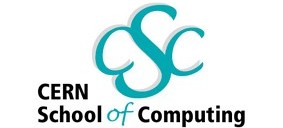Name_of_posting_person: Francois Fluckiger
CSC_year: CSC2007
Type_of_posting: I have a specific topic to propose
Date: September 19, 2008
Time: 04:59:45 PM
MessageWelcome to CSC2008 participants. I hope you enjoyed our school and you will be willing to suggest topics through this forum.
However, I know that the current year is extremely busy for several of you (LHC completion). Therefore, consider this as an opportunity but not as having any kind of moral obligation
(there might be another opportunity for a joint CSC2008-CSC2009 inverted school
in March 2010).
Franšois, School Director
Name_of_posting_person: Samuele Kaplun
CSC_year: CSC2008
Type_of_posting: I have a specific topic to propose
Date: September 30, 2008
Time: 01:38:47 PM
MessageMy first proposal is the extension of the presentation I did for the CSC2008. I.e. Python (for Physicists). That means a course on Python trying to underline topics interesting to physicists and their typical issues.
Name_of_posting_person: Samuele Kaplun
CSC_year: CSC2008
Type_of_posting: I have a specific topic to propose
Date: September 30, 2008
Time: 01:45:29 PM
MessageA second proposal is for an introduction to "Quantum Computing".
The quantum computing field might be very important for the near future if laboratory experiments on QC might become more affordable leading the construction of a real quantum computer.
Moreover this topic might be a good example of knowledge exchange between Physics and Computer Science.
I must say that I worked on QC only for my bachelor thesis and from the point of view of a computer scientist. Hence I'd need to revise it a lot, and it would be great to work in a team including physicists who far better know the physics point of view.
Name_of_posting_person: David Gonzalez Maline
CSC_year: CSC2008
Type_of_posting: I have a specific topic to propose
Date: October 22, 2008
Time: 12:32:50 PM
MessageHello all, I have only one topic to propose.
It would be about the use of neural networks for data regression and discrimination.
Nowadays, NN have a very wide range of use, from science to finance. Even at CERN NN are present at many aspects of the LHC experiments, from the most basic aspect up to data analysis. They are used inside the detectors to trigger the acquisition of data and they are also used to analyze the data retrieved once obtained. So I guess this topic would be suitable for all the types of students attending the school, including physicist and engineers
The lectures would cover the following:
- A basic introduction on what a NN is, how and when to use one and what advantages and disadvantages they have over other type of techniques.
- The different types of neural networks used in the field and for the purposes previously mentioned. This would also include the algorithms used for their training and perhaps a bit of a mathematical background (a detailed background could be given to the student as an appendix to the lecture slides in case they want to look at it by their own). This lecture could cover Single Layer
Perception, Multi Layer Perception, Radial Basis NN and perhaps Support Vector Machines.
- Heuristics and techniques to improve the performance of the training from a general point of view for all the types of NN. This would also include techniques/algorithms to process the data to be used by the NNs.
- Finally it could be interesting to have a look to the latest developments of NNs and their use in other fields, as Artificial Life or Neuroscience and the impact it will have over the NNs used in data analysis. This point would be brief and only for the sake of knowledge and further references for the students that have more interest in the topic.
- In the practical side of the topic, just in case it might be interesting, I would propose two exercises.
- A simple one to get familiar with NNs studied in theory and their training methods where the student will have to make a simple qualification of data and a simple regression.
- This could be followed by a more advanced exercise (actually a famous one in many books of AI) where the student will be given a set of data of the prices of houses in San Francisco during a certain period of time and they will be asked to predict the price for the following time.
Name_of_posting_person: James Thorne
CSC_year: CSC2008
Type_of_posting: I have a specific topic to propose
Date: October 31, 2008
Time: 12:26:01 PM
MessageMonitoring the grid is a huge task and one which is becoming increasingly important. The LHC experiments, systems administrators and managers all need to know the status of sites, whether it's their own or not, and all want it presented in a different way.
Communicating the status of grid services at a site to the grid as a whole is challenging and still has some creases to iron out. Monitoring the grid and ways of improving it would make an interesting topic for iCSC.
Name_of_posting_person: Franšois Fluckiger
Type_of_posting: End of posting period
Date: November 19, 2008
Time: 02:28:57 PM
MessageDear CSC2008 participants,
On behalf of the CSC Advisory Committee, I would like to thank the CSC2008 participants for their postings on this forum.
Have was noted, there were good but few proposals this year. Therefore, the Advisory Committee decided to postpone iCSC2009, and to propose a joint inverted school in
2010 with CSC2008 and CSC2009 willing students.
As a result, there will be another call next autumn where we hope those who made proposals this year will be willing to re-submit their (or a new) proposal. This may also give further opportunities to identify possible teammates. We of course also invite all the other participants to also propose topics next year.
Many thanks again to those who developed ideas on this forum.
Franšois Fluckiger,
CSC Director
|

